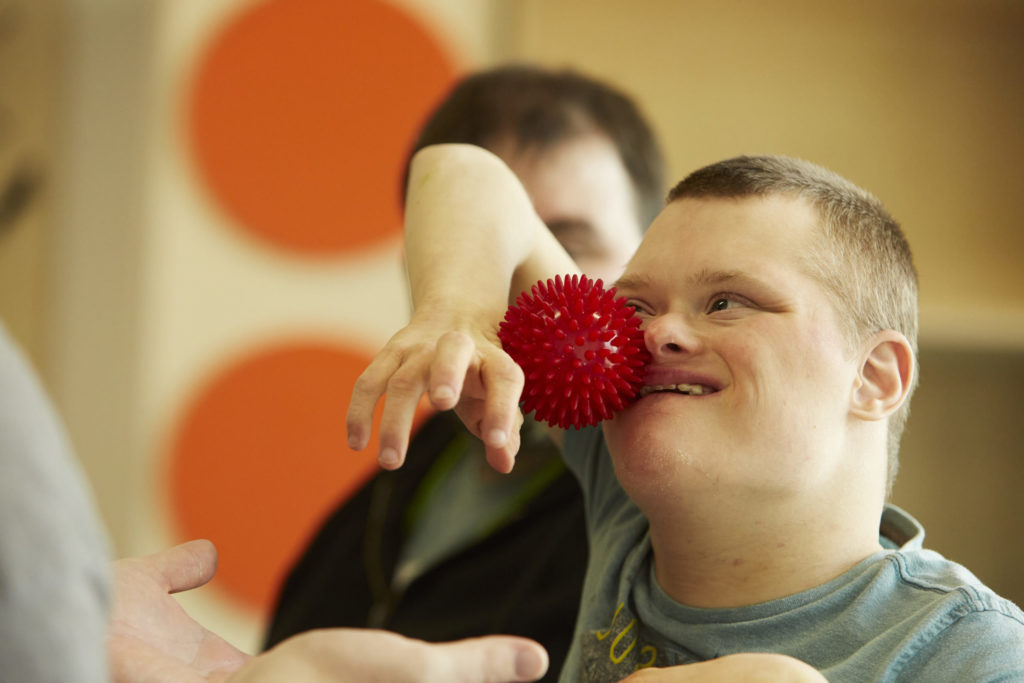For the first time, we know the scale of complex disabilities in the UK
Last week, we published our research into how many people in the UK live with complex disabilities. Here, our CEO Richard Kramer explains how we hope this data will drive much-needed change in the support services available to disabled people.

When I look back at the narrative around social care from the past few years, one of the things that comes to mind is personalisation. At the heart of personalisation is that those using and accessing support are people. People who have likes and dislikes, aspirations and hopes, and who are unique.
On the face of it, personalisation is simple. Some may say it shouldn’t even need to be a movement or a term, it should just ‘be’. But the reality is that it is very much needed.
Services don’t always acknowledge that people can have multiple needs
Too often we see services built around a single need rather than being focused fully on the people they support. Services don’t always acknowledge that people may have more than one co-existing need, and try to fit people into what is available rather than what they need.
This may include children, young people and adults with a sensory impairment combined with a learning disability or autism, or children, young people and adults with both a hearing and sight impairment.
So what are the barriers to person-centred care? For me a key one is data. If we don’t know the needs of people how can we commission, build and deliver services that meet them?
Our new research reveals how many people in the UK have complex needs
This is why I am proud that last week, Sense published ground-breaking new research. For the first time, we know the true scale of complex disabilities – 1.6 million people in the United Kingdom have a complex disability; that’s 1 in 10 of disabled people.
That number is growing. Estimates show that there will be 2 million people with complex disabilities in the UK by 2029. Complex disabilities commonly describe a person living with two or more disabilities who may require high levels of support. These needs may be from birth, or following illness or injury, or they may develop with age. The person may need support from a range of health and social care services.
Meeting complex needs is not a minority issue. It should help transform health and social care services for everyone.
Richard Kramer
This is the first time an estimate – with regional breakdowns, down to local authority and constituency level – has been made on the number of children and adults with complex disabilities. Research in this area, until now, has been limited.
The lack of robust and accurate data means that local authorities and the NHS have not been able to adequately plan and commission services for them.
Transforming the future of care and support for disabled people
We need to systematically transform the care and support available for disabled people with complex needs, who deserve better support than they currently receive. To get there, we need a cultural shift towards people-centred and holistic support.
This research is the first step on this journey. I hope that it will provide a significant milestone, and that local authorities and the NHS will be able to use this information so that they are more alert to the full range of people’s needs and the interaction between those needs. It should encourage them to develop a more joined-up approach to policy making, assessment of need, service delivery and support.
It is also an opportunity for those of us who are providers of services to tailor our support to better meet disabled people’s complex needs, allowing them to achieve the best possible outcomes.
Having this research gives us a new voice when we talk to commissioners, policy makers and others in power. This is just the start though – knowing the scale sets our ambition high, but we mustn’t lose focus on the individual. True person-centred support comes from knowing what matters to people, and that’s not something you can quantify.
Ultimately, meeting complex needs is not a minority issue. It should help transform health and social care services for everyone.

